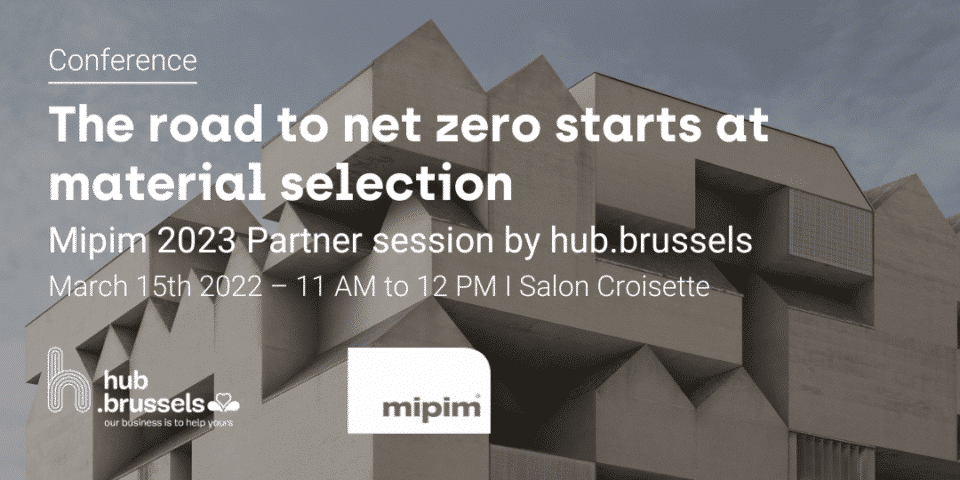Total greenhouse gas emissions in the Brussels-Capital Region in 2020 decreased by 33% compared to 2004, driven by the decrease in energy consumption (mainly related to heating in buildings).
However, this good news on the reduction of GHG emissions needs to be tempered: to reach the European objective for 2050 – a reduction of 80 to 95% of GHGs compared to 1990 levels – all energy consumption would have to be reduced considerably.
Despite an increase in energy efficiency investment and lower energy intensity, the building and construction sector’s energy consumption and CO2 emissions have rebounded from the COVID-19 pandemic to an all-time high. Released at the latest round of climate talks in Egypt, COP27, the 2022 Global Status Report for Buildings and Construction finds that the sector accounted for over 34 per cent of energy demand and around 37 per cent of energy and process-related CO2 emissions in 2021.
The worst culprits in building materials manufacturing are easy to determine. Five to seven percent of global CO2 emissions are caused by cement production. The iron and steel sector account for 11 percent of global CO2 emissions. And more than 5 percent of the world’s entire electrical generation is spent on the production of aluminum.
These manufactured materials are primarily used for the construction of new homes and commercial buildings due to the construction boom that is happening in emerging markets, where population growth and migration to cities will contribute to doubling building stock by 2050.
Considering a material’s embodied energy and carbon footprint in the initial stages of a product’s development must help counteract this. Given the important role that building materials play in global resource consumption, air pollution and GHG emissions, it is essential that the measurement of embodied energy become a crucial part of the decision-making process for designers and clients. Through greater awareness we can create a larger market for low embodied energy products and put pressure on all manufacturers to develop alternatives for their respective markets.
PROGRAM
11:00 Welcoming address
- Pascal SMET – Secretary of State for the Brussels-Capital Region
11:05 Opening Keynote
- Michaël MORADIELLOS – EPEA Benelux
11:20 Panel
- Stefaan MARTEL – BOPRO
- Jeroen VANDER BEKEN – NEY & PARTNERS
- Steven WARE – ARTBUILD
- Sandra GOTTCHEINER – BPI
- Moderator : Michaël MORADIELLOS – EPEA Benelux


